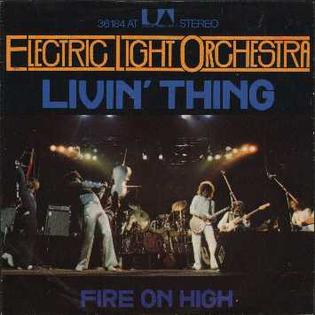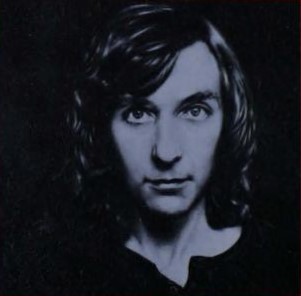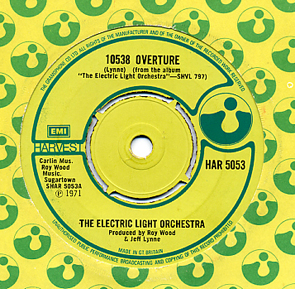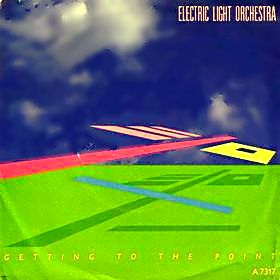Related Research Articles

The Electric Light Orchestra (ELO) are an English rock band formed in Birmingham in 1970 by songwriters and multi-instrumentalists Jeff Lynne and Roy Wood with drummer Bev Bevan. Their music is characterised by a fusion of pop and classical arrangements with futuristic iconography. After Wood's departure in 1972, Lynne became the band's sole leader, arranging and producing every album while writing nearly all of their original material. From this point until their first break-up in 1986, Lynne and Bevan were the group's only consistent members.

Jeffrey Lynne is an English musician, singer-songwriter and record producer. He is the co-founder and currently the sole member of the rock band Electric Light Orchestra (ELO), which was formed in 1970, and as a songwriter has written all of the band's music past 1972, including the hits "Evil Woman", "Livin' Thing", "Telephone Line", "Mr. Blue Sky", "Don't Bring Me Down", and "Hold On Tight".

Face the Music is the fifth studio album by Electric Light Orchestra (ELO). It was released in September 1975 by United Artists Records and on 14 November 1975 in the United Kingdom by Jet Records. The album moves away from the large-scale classical orchestrated sound of the previous album, Eldorado, in favour of more "radio-friendly" pop/rock songs, though the string sections are still very prominent. The new sound proved successful for the group, for Face the Music was the first ELO album to go platinum.

On the Third Day is the third studio album by Electric Light Orchestra (ELO), and the first to be recorded without input from Roy Wood. It was released in the United States in November 1973 by United Artists Records, and in the United Kingdom on 14 December 1973 by Warner Bros. Records. From this album on, the word The was dropped from the band's name. The album was reissued on 12 September 2006.

ELO 2 is the second studio album by the Electric Light Orchestra (ELO), released in 1973. In the US, the album was released as Electric Light Orchestra II. It was the band's last album to be released by the Harvest label, the last on which the band used the definite article The in their name, and the one that introduced their abbreviated name 'ELO'.

Out of the Blue is the seventh studio album by the British rock group Electric Light Orchestra (ELO), released on 24 October 1977 in the United States and four days after in the UK on 28 October. Written and produced by ELO frontman Jeff Lynne, the double album is among the most commercially successful records in the group's history, selling about 10 million copies worldwide by 2007.

Time is the ninth studio album by English rock band Electric Light Orchestra, released in July 1981 on Jet Records. It is a concept album about a man from the 1980s who is taken to the year 2095, where he is confronted by the dichotomy between technological advancement and a longing for past romance. The record topped the UK Albums Chart for two weeks, though it attracted mixed reviews for its heavy use of synthesizers and stylistic shift away from the orchestral rock of previous ELO albums. It has since gained a cult following, particularly among retrofuturist enthusiasts.
Wilfred Gibson was an English violinist, session musician, and early member of the Electric Light Orchestra.

"Livin' Thing" is a song written by Jeff Lynne and performed by Electric Light Orchestra (ELO). It appears on ELO's 1976 album A New World Record and was also released as a single. Patti Quatro sang uncredited vocals, particularly the "higher and higher" parts.

Richard Tandy was an English musician. He was the full-time keyboardist in the band Electric Light Orchestra ("ELO"). His palette of keyboards was an important ingredient in the group's sound, especially on the albums A New World Record (1976), Out of the Blue (1977), Discovery (1979) and Time (1981). He collaborated musically with ELO frontman Jeff Lynne on many projects, among them songs for the Electric Dreams soundtrack, Lynne's solo album Armchair Theatre and Lynne-produced Dave Edmunds album Information.

Michael Kaminski is an English musician. He is best known for playing violin in the rock band Electric Light Orchestra (ELO) between 1973 and 1980 and touring from 1981 to 1986, as well as being a member of Electric Light Orchestra Part II from 1991 until its end in 2000, and then The Orchestra from 2000.

"10538 Overture" is the debut single by the English band the Electric Light Orchestra. It was released on 23 June 1972 as the lead single from their self-titled debut studio album (1971). It is a hard rock song influenced by psychedelic music, with cello instrumentation and lyrics about an escaped prisoner. Originally written by co-founder Jeff Lynne for him and Roy Wood's previous band, the Move, it became the first recording by the Electric Light Orchestra after Wood added orchestral instruments to the song.

"Do Ya" is a song written by Jeff Lynne, that was originally recorded by The Move, which became a hit for the Electric Light Orchestra in 1977.

"Showdown" is a 1973 song written by Jeff Lynne and recorded by the Electric Light Orchestra (ELO). It was the band's last contemporary recording to be released on the Harvest label. The song was released as a single and reached No 12 in the UK Singles Chart, in the week beginning 28 October, and No 9 on the Norwegian chart VG-lista.

"Don't Bring Me Down" is the ninth and final track on the English rock band the Electric Light Orchestra's 1979 album Discovery. It is their highest-charting hit in the United States to date.

"Rain Is Falling" is a song written and performed by Electric Light Orchestra (ELO).

"Getting to the Point" is a song by the rock group Electric Light Orchestra (ELO) from their 1986 album Balance of Power. Released in the UK as the last single from the album in August 1986, it was the last original release from the band for 15 years.
Light Years, The Very Best of Electric Light Orchestra is a two CD compilation album by Electric Light Orchestra (ELO), released in 1997.

Alone in the Universe is the thirteenth studio album by British rock band Electric Light Orchestra (ELO), and the first credited to Jeff Lynne's ELO. The moniker came out from Lynne as a response to ELO tribute and imitation bands, who repeatedly used ELO for promoting their own tours. Released on 13 November 2015, the album is the first of new original material credited to the group since Zoom in 2001, and the second since the group's original disbandment in 1986.
References
- ↑ Lesterpublished, Paul (2024-03-02). ""I picked up that sad song thing from Del Shannon and Roy Orbison. Sometimes sadness is the greatest thing to listen to… It's like, 'I'm happy now 'cos that's exactly how I feel'": Is the secret to Jeff Lynne's success with ELO that simple?". louder. Retrieved 2024-06-27.
- ↑ Gibson, Wilf (October 2003). "The Wilf Gibson Interview". Cherry Blossom Clinic (Interview). Interviewed by Martin Kinch. Archived from the original on 2016-03-04. Retrieved 2016-01-14.
- ↑ Shaw, Greg (31 January 1974). "On the Third Day". Rolling Stone . Archived from the original on 25 August 2007. Retrieved 13 November 2020.